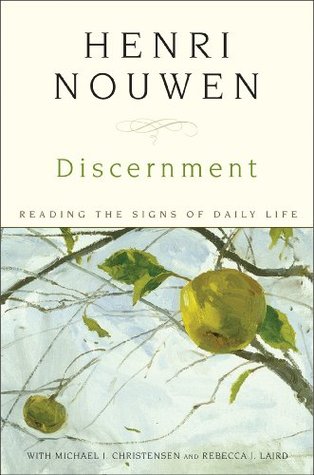More on this book
Community
Kindle Notes & Highlights
We ask that you may be filled with the knowledge of God’s will in all spiritual wisdom and understanding so that you may lead lives worthy of the Lord. —Colossians 1:9–10 NRSV
Discernment is a life of listening to a deeper sound and marching to a different beat, a life in which we become “all ears.”
Discernment is expressed concisely by the apostle Paul in the Letter to the Colossians: “We ask that you may be filled with the knowledge of God’s will in all spiritual wisdom and understanding so that you may lead lives worthy of the Lord” (Col. 1:9-10 NRSV). By “spiritual understanding,” Saint Paul means discerning, intuitive, and perceptive knowledge, usually found in solitude, the fruit of which is a profound insight into the interconnectedness of all things, through which we can situate ourselves in time and space to know God’s will and do God’s work in the world.
Discernment allows us to “see through” the appearance of things to their deeper meaning and come to know the interworkings of God’s love and our unique place in the world. Discernment helps us come to know our true identity in creation, vocation in the world, and unique place in history as an expression of divine love.
Those who practice discernment are often more contemplative than those who are so active that they do not take the time to reflect on the inner meaning of appearances. The most interesting things in life often remain invisible to our ordinary senses, yet are visible to our spiritual perception. In large measure they can very easily be overlooked by the inattentive, busily distracted person that each of us can so easily become.
the Greek fathers, who were great contemplatives, are known as the “diaretic fathers.” (Diarao means “to see into,” “to see through”—literally, into the heart of the matter.) That is why they could read the hearts and the troubled souls of those who consulted them: because they could see through appearances into the innermost self.
Jesus, of course, had this capacity to see truly. For example, Saint John tells us, “Jesus did not want to entrust himself to them because he knew what was in every heart” (John 2:24).
the way Jesus “saw” Nathanael under the tree in the Gospel of John. Even before meeting him, Jesus said of Nathanael: “Here is truly an Israelite in whom there is no deceit!” When the two men met on the road, Nathanael asked Jesus with amazement: “How do you know me?” Jesus answered him, “Before Philip called you, when you were under the fig tree, I saw you.” Jesus’s seeing through Nathanael under the fig tree was such a powerful act of discerning what was in his heart that it caused Nathanael to proclaim: “Rabbi, you are the Son of God! You are the King of Israel!” To which Jesus remarked,
...more
This highlight has been truncated due to consecutive passage length restrictions.
The purpose of discernment is to know God’s will, that is, to find, accept, and affirm the unique way in which God’s love is manifest in our life.
Finding ourselves in a relationship with God is prerequisite to discernment of God’s will and direction.
In our dynamic relationship with God, we can be sure of one thing: “If we are faithless, God is faithful still, for God cannot disown his own” (2 Tim. 2:13).
Jesus looked at the human condition with the eyes of love and tried to teach us how to look at ourselves and others “from above” and not “from below,” where dark clouds obscure our vision. “I come from above,” Jesus told his disciples, “and I want you to be reborn from above so that you will be able to see with new eyes” (John 3:3). This is what spiritual theology is all about—looking at reality with the eyes of God.
And there is so much to look at: land and skies; sun, moon, and stars; human beings in all their diversity; continents, countries, cities, and towns; events in the past, present, and future. That’s why there are so many theologies.
Their lives of discernment are characterized by single-mindedness: they have but one true desire—to know God’s heart and do God’s will in all things. In the words of Jesus to Nicodemus, they live the truth and seek to “come to the light, so that it may be clearly seen that their deeds have been done in God” (John 3:21 NRSV).
But it is good to begin this spiritual movement in solitude. Our first task in solitude is to simply allow ourselves to become aware of the divine presence, to “Be still, and know that I am God!” (Ps. 46:10). When we are alone with God, the Spirit prays in us. The challenge is to develop a simple discipline or spiritual practice to embrace some empty time and empty space every day.
commitment to spending time alone with God each day for prayer and meditation.
Most important is how we read—not to understand or control God, but to be understood and formed by God.
Clock time can become sacred time. We can choose fifteen minutes, half an hour, or even a few hours, and set them aside for God.
While discernment begins in solitude, individual seekers of God always come together in community, for the Spirit gathers all believers into one body for accountability and mutual support. A person honestly seeking to know God’s will and way will choose to be in community.


